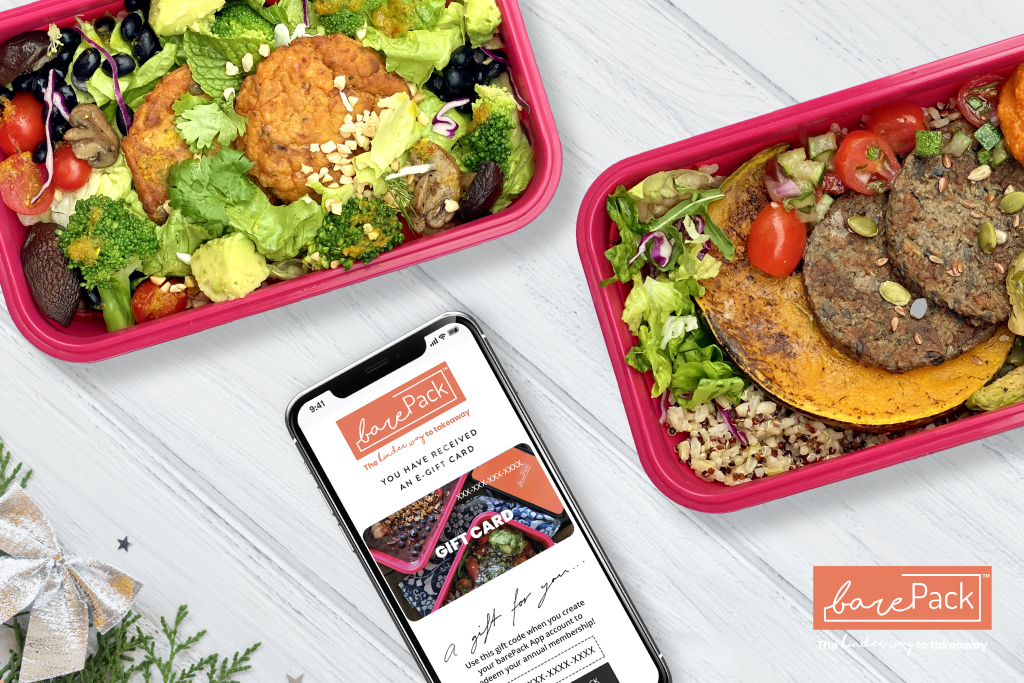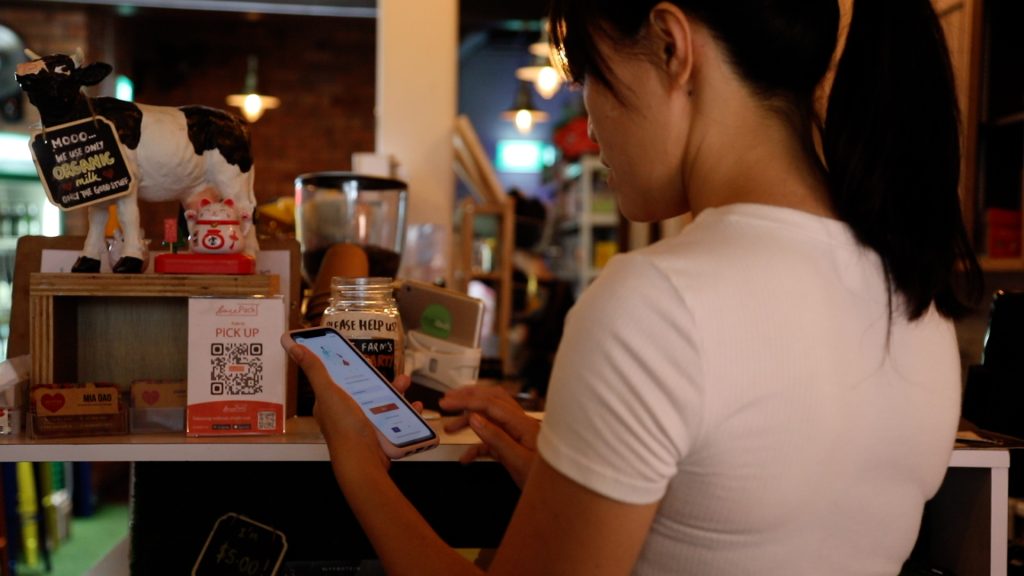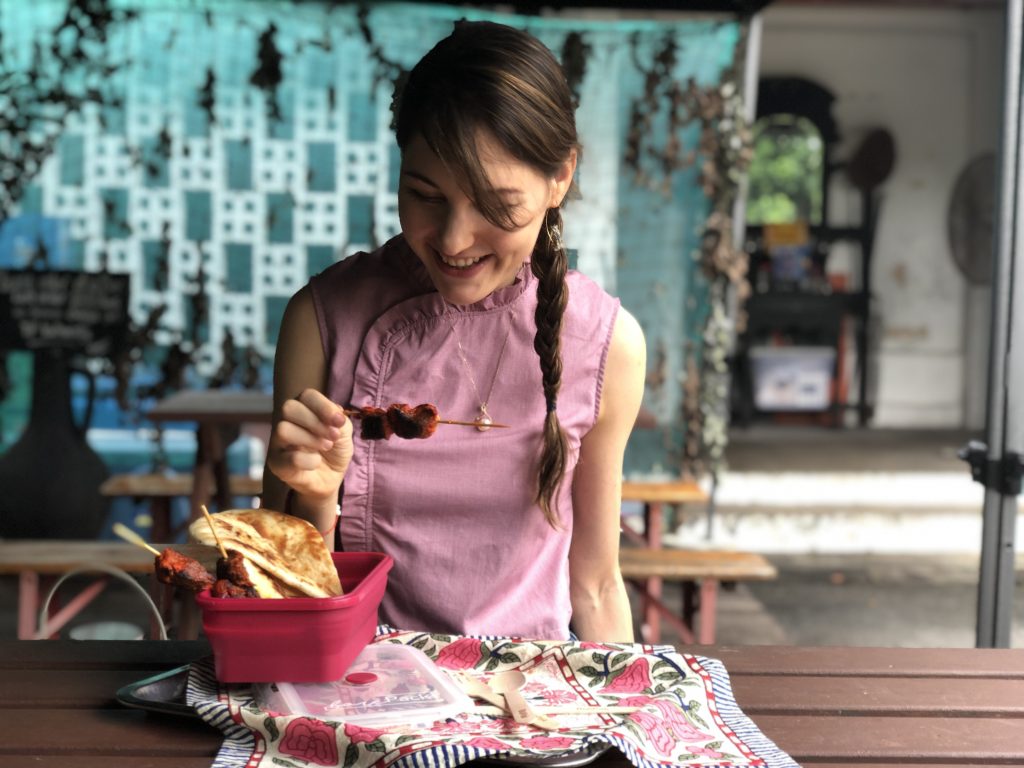By Marlet Salazar

Coming from a career in fashion and graphic design, Roxane Uzureau introduced in 2019 a novel food delivery idea—a membership-based service wherein customers can order their food in reusable containers using an app.
Wanting to embrace the local culture but struggling with the disposable packaging and vast amount of waste from the takeaway way of life, Roxane realised that if she were to tackle one aspect first, it had to be food. Hence, she founded barePack.
“I have always been quite sensitive to the notion of waste,” she said. “It’s something that genuinely upsets me. Everything has an environmental cost, even what you consider free.”
The idea of membership-based service has been going around for years, but an app- and membership-based service that works across many delivery platforms is novel, making Singapore the world’s first to have a solution that caters for all its major delivery platforms—Foodpanda, Deliveroo and Grab.
“There is an unmet need for those who don’t want to sacrifice the environment (and their health) for convenience,” Roxane explained.

The positive response from consumers encouraged Roxane to keep going.
Roxane’s biggest challenge has been changing the mindset of restaurant owners, especially those that have been in business for a long time.
“We had to convince restaurants that we had a solution that would work,” she said. “It was so different and novel. We had first adopters who we leveraged for social proof to get others who are less keen on board, and even big chains that typically would be averse to changing their operations.”
Roxane said the service is free for the businesses because the consumers, who are the members, are the ones paying for it, but they had to prove to restaurant owners that they could implement barePack without repercussions on their operations and that it would answer the needs of increasingly conscious consumers whose top complaint, according to restaurants barePack spoke with, pertains to unsustainable packaging.

To spread the word and raise awareness of the service, Roxane said that they did a fair bit of marketing and communications for the businesses—all at no cost—to show that they were ready to put in all the effort needed to convert customers and make it a fruitful collaboration.
But businesses have a bottom line to protect which prevented them from embracing sustainable operations.
Adoption rates improved when the company introduced the rewards system and entered into partnerships. Finding like-minded businesses have been hard but barePack eventually found businesses that are willing to try something new.
Culture and beliefs are also some of the challenges barePack have to contend with. Some people feel that reusables are less hygienic than single-use containers. But Roxane argues customers cannot be too sure that single-use is cleaner than reusables.
“The WHO (World Health Organization) states that the best way to protect yourself from diseases is to wash your hands and surfaces with soap and water,” she said. “As such, reusable containers like ours that are cleaned by restaurants are almost guaranteed to be clean. Can you say as much about the single-use container?”
The COVID-19 pandemic that forced governments to impose lockdowns to curb the spread of the virus allowed barePack to promote their novel idea. Locked in their houses, people resorted to deliveries which significantly increased packaging waste. During the circuit-breaker months in Singapore, where Roxane and barePack are based at the moment, she realized that she needed to collaborate with the delivery service companies foodpanda and Deliveroo.
“Bring your own schemes were halted in many restaurants because of the risk of contamination from accepting to handle customer containers but barePack doesn’t require taking in a container from a consumer by a food handler and as such we maintain our service in almost every single location,” Roxane said.

According to Roxane, the collaborations with foodpanda and Deliveroo—and the newest to come onboard: Grab—were pivotal in getting more visibility and buy-in from restaurants and consumers alike.
Like most businesses, barePack is also affected by the pandemic. Seeing that there was less foot traffic, Roxane said they upped their ability to offer food delivery in barePack containers.
“With Deliveroo, we offered a deposit mode for customers who did not want to become members yet and made it free to use the service as a member during COVID-19,” she said. “Since then, we resumed pricing but kept a monthly free trial period and then a low 99 cents/month membership. We did more education on the safety of reuse versus disposables to really show how there is no science to back the safety of single-use and to crush that perception. We added over twice as many restaurants to be more accessible, in the COVID period alone, moving from just 30 locations to over 80 and now over 100.

Roxane said that they are guided by their mission of replacing the millions of disposables used every day in food and beverage takeaway and delivery.
“We want to empower consumers to change their habits for a healthier and more sustainable life without having to give up on the things they enjoy such as food on the go and late-night delivery,” she said. “We believe in kindness: to each other, the planet, our partners, our customers.”
Facebook: https://web.facebook.com/barePack.co/
_____________________
This article is part of the book, BUSINESS UNUSUAL: Enterprises paving the way to Zero Waste, a collection of feature articles on select enterprises in Asia Pacific that practice and promote Zero Waste principles. Published by Global Alliance for Incinerator Alternatives, the publication may be downloaded for free at no-burn.org/business-unusual
By Marlet Salazar




























